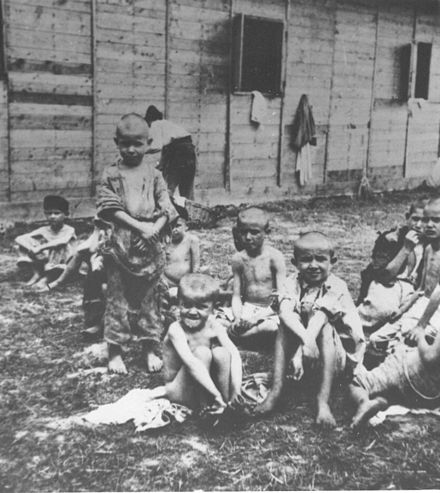Welcome to the Wakefield Doctrine (the theory of clarks, scotts and rogers)
Early start on this here Six Sentence Story here.
Our host is Denise and, each week, she provides a new prompt word.
We’re expected to write a story utilizing this word and make the sentence count come out to six. And only six.
Readers of these pages will recall several Six Sentences Stories that take place in the institutionalized horror of Mississippi’s Parchman Farms prison. This, only because I read a few sites that described the early days of the place. This week is similar, but worse. The photo at the top is courtesy of Wikipedia. Let them tell you the backstory of this week’s Six. On a more positive note, we get to visit a character and location from my WIP, ‘Home and Heart’.
This week, the word is:
REFUSE
Turning from the blackboard, the white cursive letters shaping a single word, ‘Heteronym’, Sister Cletus addressed the class, “Who among you young ladies and gentlemen,” she smiled at the repressed giggles, aware that children always find formality amusing, “would care to give us an example?”
Her eyes, blue opals at bottom of a spring-flooded stream, finely carved contours of her face worn into rounded folds like a snow drift in March, scanned the classroom.
In the kind of surprise common to a fatal heart attack victims or the onset of puppy love, her mind hijacked the suburban-clean faces and combed hair of the twenty-three pupils of St. Dominique’s fifth grade and replaced them with the hunger-grimaced faces that surrounded her as a child in Sisak, Croatia, at the onset of World War II.
A film of long-banished tears blurred the orderly desks in her classroom like the beginning of a motion picture, the return of focus produced a different scene, one of barbed wire, fear and adults with the souls of jackals.
Mercifully, her memory remained true to history, relief at being pulled from the line of children herded towards a filthy railroad car, echoed over a lifetime, was still powerful enough to break the spell, even as she heard the tall, vaguely feral man whisper, “Ne bojte se mlada Svetlana, poštedjet ću vas strahote današnjeg dana.“ (‘Do not fear young Svetlana, I will spare you the horrors of this day‘).
Sister Cletus’s return to the present was anchored by the sound of Zacharia Renaude standing up next to his desk, in the back row, “If we refuse to learn, will our minds will be nothing but refuse?”; for just a moment, the old nun and the young boy laughed in a language indecipherable to the rest of the class.


 About clarkscottroger
About clarkscottroger
“blue opals at bottom of a spring-flooded stream” you do this every week! I am often jealous of your wordsmithery. Frankly, I think you’re a witch. Good six.
Thanks, man.
This is such a powerful piece of writing with a message we should never, ever forget.
yeah, it (the background) kinda jumped up and grabbed me… but the characters are enjoyable. (The story with Sister Cletus is that it was none other than Cyrus St.Loreto from ‘Home and Heart’ who saved the young nun-to-be from the concentration camp, here, here’s the scene where she tells Sister Margaret Ryan about it:
I find it almost impossible to believe humans are capable of atrocities such as the one you reference, yet they populate our history in abundance.
For those of us who have read “Home and Heart”, this is a terrible tease! Tell me Sr. Cletus will be the one responsible for the downfall of Cyrus St. Loreto :)
Very visual Six.
Found the scene (in Home and Heart) reprinted in my Reply to Pat Brockett’s Comment below.
Goodness! Just a draw in from the get go! Interesting six!
Thank you, Lisa
Sister Cletus! She’s (understandably) got ptsd. She’ll never forget and may we never forget.
Good one.
yeah… sometimes the world makes us see things that we shouldn’t have to, luckily Sister Cletus is a remarkable character (I included the full scene, from my WIP that forms of the basis of my Six) in my reply to Pat Brockett.